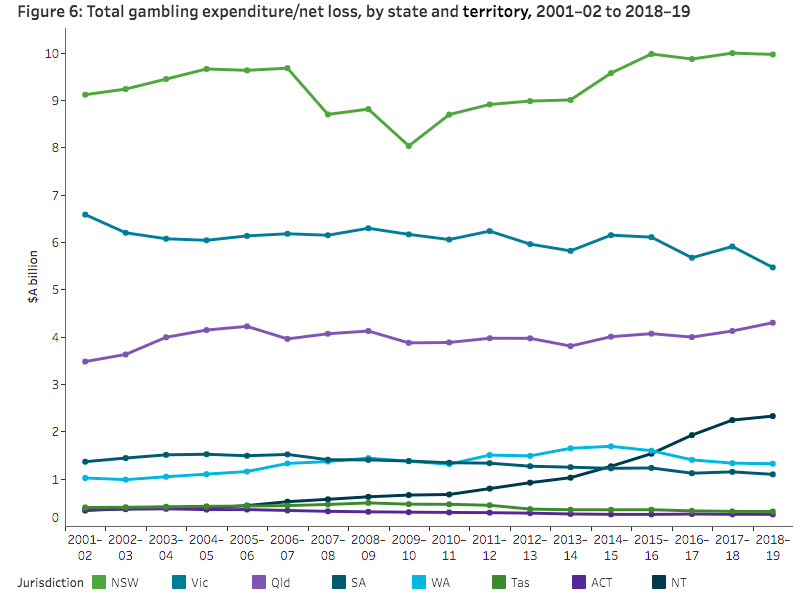The federal parliamentary inquiry into online wagering has released its report, setting out 31 recommendations for a much-needed program of gambling reform. Australia has struggled with its pervasive and influential gambling industry for years, and advocates and politicians alike are in agreement that ‘enough is enough’.
Australia is lagging far behind comparable nations like Germany and Spain in regulating online wagering, or frankly, wagering in general. In Germany, the government has implemented an advertising curfew for multiple sectors of the gambling industry, and announced a mandatory deposit limit of 1000 euros per month across all forms of gambling.
On the other hand, Australian reform is characterised as piecemeal and slow by analysts like Carol Bennett, the chief executive of the Alliance for Gambling Reform, who says “we’re playing catch-up”. Australia remains the country with the largest gambling losses in the world.

The Albanese government promised action when it was elected, announcing BetStop – a self-exclusion service, banning the use of credit cards for online wagering, and updating classification for games with lootboxes.
But none of these measures have actually been implemented. The sum total of Labor’s reform has thus far been limited to new mandatory harm-minimisation messages on ads, and restricting gambling-like activity in video games.
The recent inquiry could be the push needed to change the stagnation of widespread gambling reform; stagnation largely due to the influence of wagering companies in politics, given that polling shows the vast majority of Aussies support gambling reform.
Chaired by Labor MP Peta Murphy, the committee’s report, You Win Some, You Lose More, details 31 recommendations for effective gambling reform, focused on online wagering. The list includes calls for a comprehensive national strategy on online gambling harm reduction, national regulation, an ombudsman, education campaigns and research improvements.
But the two recommendations that have attracted immediate attention are the blueprint for a phased ban of advertising for online gambling, and a levy on gambling companies’ earnings to pay for harm mitigation measures.
The former recommendation involves a comprehensive ban across all media and at all times, to be implemented through four phases over three years. Inducements on social media and online platforms, and ads during school drop-off and pick-up times would be the first to go. This is a measure of particular interest to many analysts concerned with the influence of gambling messaging on children.
The second phase would involve a ban on all online wagering ads during and for an hour either side of sports broadcasts – a measure previously endorsed by Opposition Leader Peter Dutton. Advertising on uniforms and in stadiums would also be prohibited in phase 2.

Phase 3 and 4 would then ban broadcast ads from 6am-10pm – similar to Germany’s current curfew – and finally prohibit “all online gambling advertising and sponsorship” by the end of year three. Murphy said the timeline would “give major sports and broadcasters time to find alternative advertisers and sponsors, while preventing another generation from experiencing escalating gambling harm”.
The report also recommends implementing a levy for wagering companies, which would fund the creation of a national regulator to provide uniform oversight of the industry, which is currently regulated by state and territory bodies. Harm reduction advocates have promoted such a levy in the past, contending that gambling companies foot the bill for things like rehab centres and legal services through the fund.
Still, gambling researchers like Deakin University’s Samantha Thomas say the levy could backfire by allowing the industry “to present themselves as a good corporate citizen contributing to treatment services”, and so deflect responsibility for preventive measures.
“Treatment is important,” Thomas told the Guardian, “but we need to remember that at best treatment can only mitigate the damage that has already been caused.”
Follow Maddie’s journalism on Twitter.
Sign Up To Our Free Newsletter